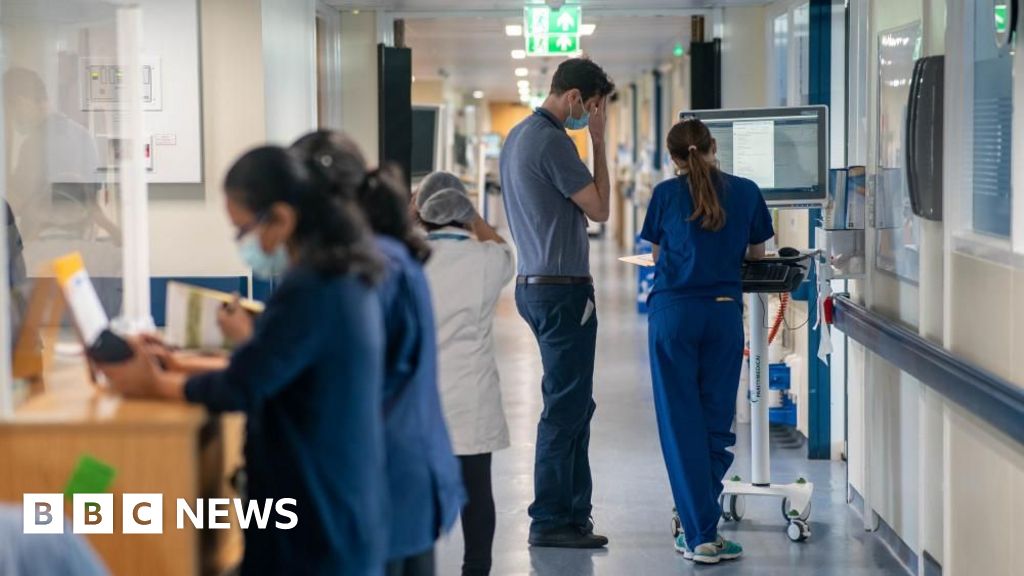Health leaders are warning that NHS services and jobs in England will have to be cut unless up to £3bn more in funding is allocated to cover unexpected costs.
The NHS Confederation and NHS Providers, representing trusts and other health organisations, said in a joint statement that the cost of covering redundancies and strikes, along with paying more for medicines, was not included in the budget this year and will need extra cash from the Chancellor.
Talks between the Department of Health and the Treasury are ongoing, Health Secretary Wes Streeting has confirmed.
Responding to the statement, the Department of Health said the government was committed to “properly funding” the NHS.
Cuts to NHS services and jobs could mean fewer tests, appointments and operations being carried out.
Senior managers say that demands from the government for significant job cuts in regional health boards and NHS trusts have been made without any promise of extra funding to cover at least £1bn of redundancy payments.
The merger of NHS England and the Department of Health will also involve staff reductions which have to be paid for.
The NHS Confederation and NHS Providers say that the doctors’ strike in England in July led to £300m of costs for NHS trusts, including covering rota gaps. The cost is likely to be the same again during the next planned strike in November, they claim.
They go on to argue that a likely deal with the United States over higher medicine prices could cost the NHS around £1.5bn.
The US administration and major pharmaceutical companies have been pushing the UK government to raise the amount paid for drugs.
The drug companies argue that investment in UK research and development of new medicines could be cut if a deal is not agreed.
Health leaders have also warned that progress on reducing waiting lists will be affected if there is no Treasury help in making up the financial shortfall.
Some argue that uncertainty over redundancy plans is distracting staff and managers from the task of turning round the NHS.
Matthew Taylor, chief executive of the NHS Confederation, said: “The threat from un-budgeted redundancy payments, higher drug prices and renewed industrial action risks derailing progress on key waiting time targets and the wider reforms that are essential to getting the NHS back on track.”
Daniel Elkeles, chief executive of NHS Providers, said: “Redundancies cost money, making it harder to make long-term savings without government support.
“As the government prepares its Budget it’s time for an honest assessment and discussion about what the NHS can really achieve this year in these challenging financial circumstances – and about what is ‘doable” to meet ministers’ ambitions in their 10-year plan for health.”
A Department for Health and Social care spokesperson said: “This government has delivered a record-breaking £29 billion investment in our NHS – including up to £10 billion on digital and technology transformation and £750 million for urgent capital repairs – demonstrating our unwavering commitment to properly funding the health service that we all rely on.
“However investment alone isn’t enough – it must go hand in hand with reform. That is why we’re doing things differently: not just fixing the NHS but moving it forward through our Plan for Change”


